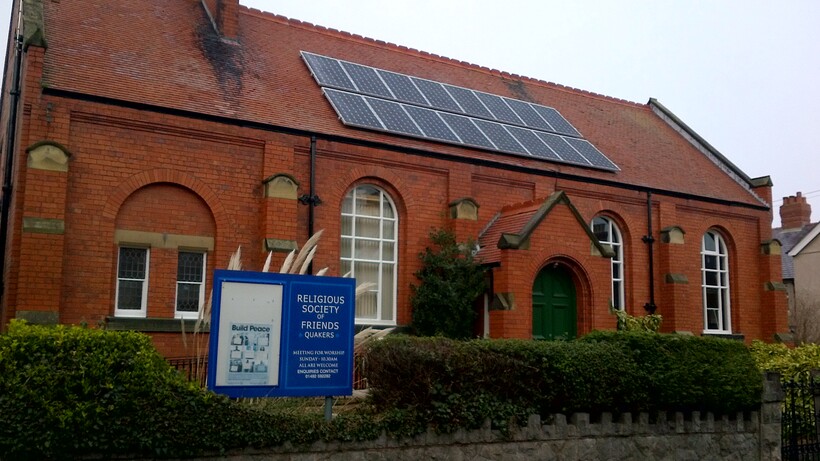Going solar
Colwyn Bay Meeting had been considering for some time how we could contribute to the Yearly Meeting commitment to become a low-carbon, sustainable community. We had already installed a more efficient central heating system and reduced our waste. We wanted to do more. After a long exploration of the best way to act, in 2013 we decided to install solar panels on our meeting house roof.

I, as the premises committee convenor, was asked to look into the complexities of a photovoltaic solar power system. I spent some time investigating on the internet and, as it turns out, found an excellent and very efficient energy advisory service. Quotations were obtained for various manufacturers systems and one was chosen.
Overcoming challenges
Unfortunately, our project was delayed due to inconsistent information on whether we needed planning permission or not. During this four month delay the government allowance to support the installation of solar panels (Feed-in-Tariff or FIT) had twice been reduced. Nevertheless, after it was all reconsidered by the meeting, we decided to proceed, and a very clean and efficient small firm quickly installed the system.
Success
Since the installation of the solar panels, no problems have been found, and even those originally doubtful of the benefits have been convinced of their value.
12,288 kwhrs of electricity have been produced, thus improving considerably our 'carbon footprint' - the original object of our decision to 'go solar'.
The initial investment is being repaid satisfactorily and the quarterly income is helping Meeting funds.
An additional benefit is that when people see the units they have a better understanding of energy saving for the environment.
The principle of using solar power for energy purposes is now better understood, with many Friends believing it should be used more to provide energy worldwide. The lack of safety with nuclear energy, and problems with the radioactive waste disposal, make that a less viable system. Renewable energy should be the aim.